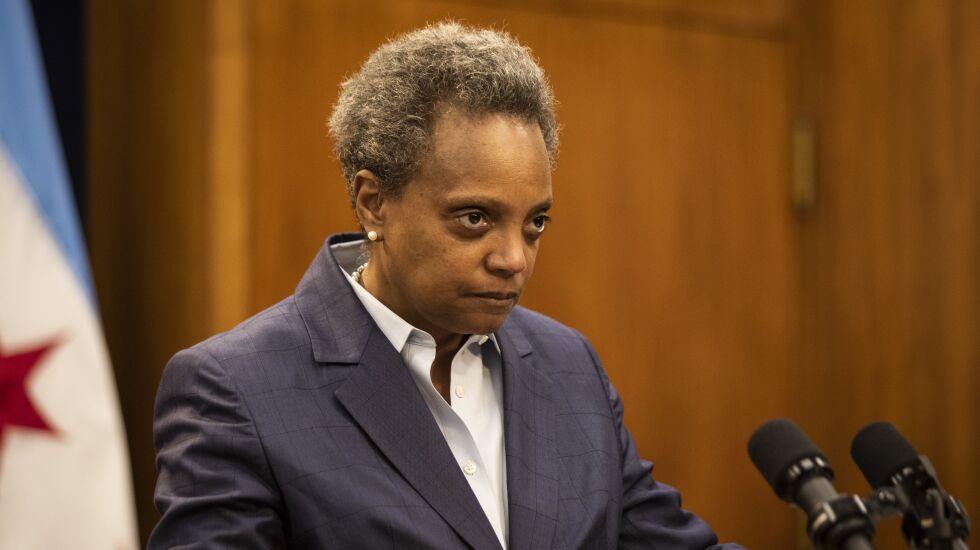
As Chicagoans grapple with summertime violence, Mayor Lori Lightfoot once again took a swing at Cook County’s court system, blaming it for the city’s uptick in crime.
It was a swing and a miss, and not for the first time.
Lightfoot said people charged with violent crimes automatically should be presumed guilty and not given bond.
The mayor’s words: “But given the exacting standards that the state’s attorney has for charging a case — which is proof beyond a reasonable doubt — when those charges are brought, these people are guilty.”
That’s an astounding statement that flies in the face of reason, the U.S. Constitution and centuries of American jurisprudence, which presumes a person is innocent until proven guilty in a court of law.
Something must be done. But not this
Lightfoot’s comments were made during a news conference Monday that followed a weekend in which 33 people were shot and six were killed. Three law enforcement officers were shot in separate incidents over the previous week.
The mayor said crime could be reduced if alleged violent offenders weren't released on bond or electronic monitoring within a day or two after being charged.
Lightfoot added that those charged are “entitled to a presumption of innocence” — but that contradicts her statement.
Cook County Circuit Court Chief Judge Timothy Evans rightfully pushed back Tuesday against Lightfoot, saying the decision not to not grant bond is decided on a case-by-case basis. That’s as it should be — without blanket assumptions of guilt.
And as Evans added, the purpose of pretrial detention “is not, however, to punish by depriving people of their liberty for crimes for which they have not yet been convicted.”
No doubt Chicago is in for a tough summer, with a ridiculous and unacceptable number of shootings, carjackings, armed robberies and assaults already kicking into overdrive.
Something has to be done. But Lightfoot’s sweeping suggestion is not the way.
We’re reminded of the federal and local tough-on-crime laws enacted in the 1990s and early 2000s. They, too, sought to shorten the pathway to prison for hundreds of thousands of people who were charged with violent (and non-violent drug) crimes.
Along the way, police and prosecutors played fast-and-loose with civil liberties to create the illusion of safety.
Has that left us demonstrably safer today? In many communities, particularly on the city’s South and West sides, the answer is no.
Lightfoot is undoubtedly frustrated by the amount of crime in the city. Most Chicagoans are too.
But she and the city are best served by her administration keeping its focus on creating a comprehensive and workable plan — like the promising $150 million summer jobs program — to bring down the violence, in both the short and long terms.
Tough talk accomplishes nothing.
Send letters to letters@suntimes.com.







